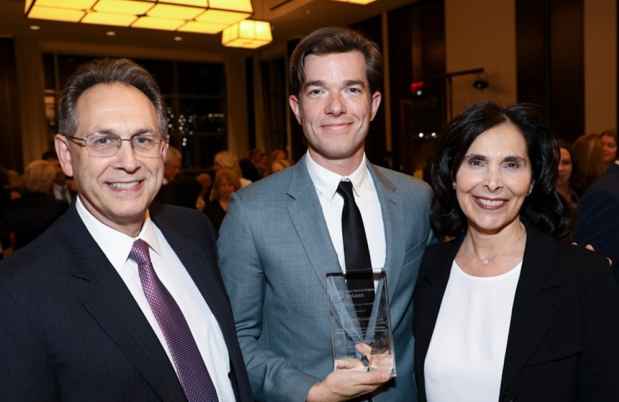Bill Carlezon, PhD, leads McLean’s Jerry and Phyllis Rappaport Center of Excellence in Basic Neuroscience Research, where researchers are working to understand the role brain function plays in psychiatric illnesses. We spoke with him to get an update on the center, which includes approximately 20 labs funded by more than $18 million in federal and private grants.
Horizons: What are some of the research questions your team is seeking to answer?
Dr. Carlezon: The fundamental thing we’re all doing is trying to understand how the brain works, for instance, how experience affects the brain. Many things qualify as “experience,” including exposure to stress, drugs, toxins, or infections. Stress, in particular, plays a role in nearly all of the conditions we see at McLean. My own lab studies a chemical that turns on when you’re stressed and has led to the discovery of an anti-anxiety drug currently in clinical trials. One of my colleagues is attempting to develop anti-anxiety medications that have neither addictive nor sedative effects. Another lab is working to weaken the negative memories that cause post-traumatic stress disorder (PTSD) by strengthening new memories of safety. The list goes on.

We study a range of neuropsychiatric illnesses, including depression, anxiety, addiction, stress-related illnesses like PTSD, Parkinson’s disease, autism, geriatric illnesses, and psychotic disorders. Our investigators explore how and why the brain is affected in each condition, down to individual cells and their function.
Horizons: How has the paradigm for studying psychiatric illnesses changed over the decades?
Dr. Carlezon: Let’s take the example of depression. In the 1950s, it was discovered that a drug used to treat tuberculosis had antidepressant side effects. So, the first antidepressants were discovered accidentally. For years, researchers studied depression by studying antidepressants—with the idea that if we understood how the drugs worked, we could make better versions of them. It took us decades to realize that this was not a fruitful approach.
The new way to study depression is to identify the changes that occur when the normal brain becomes depressed. If we understand this process, we can come up with ideas for the next generation of medications, which we envision will be better. It’s a new era in psychiatric research where the focus is on the brain, not the drugs.
Horizons: What sorts of cutting-edge technologies are researchers using in their work?
Dr. Carlezon: We have many, but I’ll mention a few. One technique is to create induced pluripotent stem cells, or iPSCs. These are skin or blood cells that we can turn into any type of cell we want to study. For example, we can scrape the cheek of someone with autism, turn it into a brain cell and then study that cell in a petri dish, and ask questions about how those cells are different from those from people who do not have the condition.
Optogenetics is another technology that involves using light-sensitive receptors from algae to study what happens when you turn specific brain circuits on or off.
A third example is fluorescence-activated cell sorting, or FACS. This is a machine that uses light to take a mixture of different cells—let’s say the cells from a brain of a mouse exposed to early developmental inflammation—and sort them, one at a time, into subtypes for study.
Horizons: What are your goals as chief of the center?
Dr. Carlezon: One major goal is to increase collaboration by sharing insights and resources. This includes an effort to ensure that each lab understands what its neighbors are doing. We’ve established a weekly lecture series where researchers share their work, show “hot off the press” data, and receive input from other researchers.
It is safe to say that we all dream about contributing to the development of improved therapeutics for psychiatric illnesses. Our labs are in the center of a psychiatric hospital. We look out the window and see people with these illnesses. We are reminded every day that our mission is to improve the prognosis for our patients and their families. It is very inspiring!
Horizons: What role does philanthropy play in the center?
Dr. Carlezon: Donors have made a significant impact on our research progress by providing seed funding to generate pilot data, supporting the critical contributions of research fellows who are the engines of every lab (see “Rappaport Fellowship”), and backing multi-year projects which often are the precursors to gaining federal funding. We have been fortunate to have donors support our basic research in all these ways and even—more recently—through endowments that provide an enduring base of support (see “Graham Family Gift”). It can take many years to turn discoveries into treatments, and we share the hope that each day gets us closer to better treatments and cures.
Media Requests
Journalist or member of the media? We are available 24/7 for media requests.



